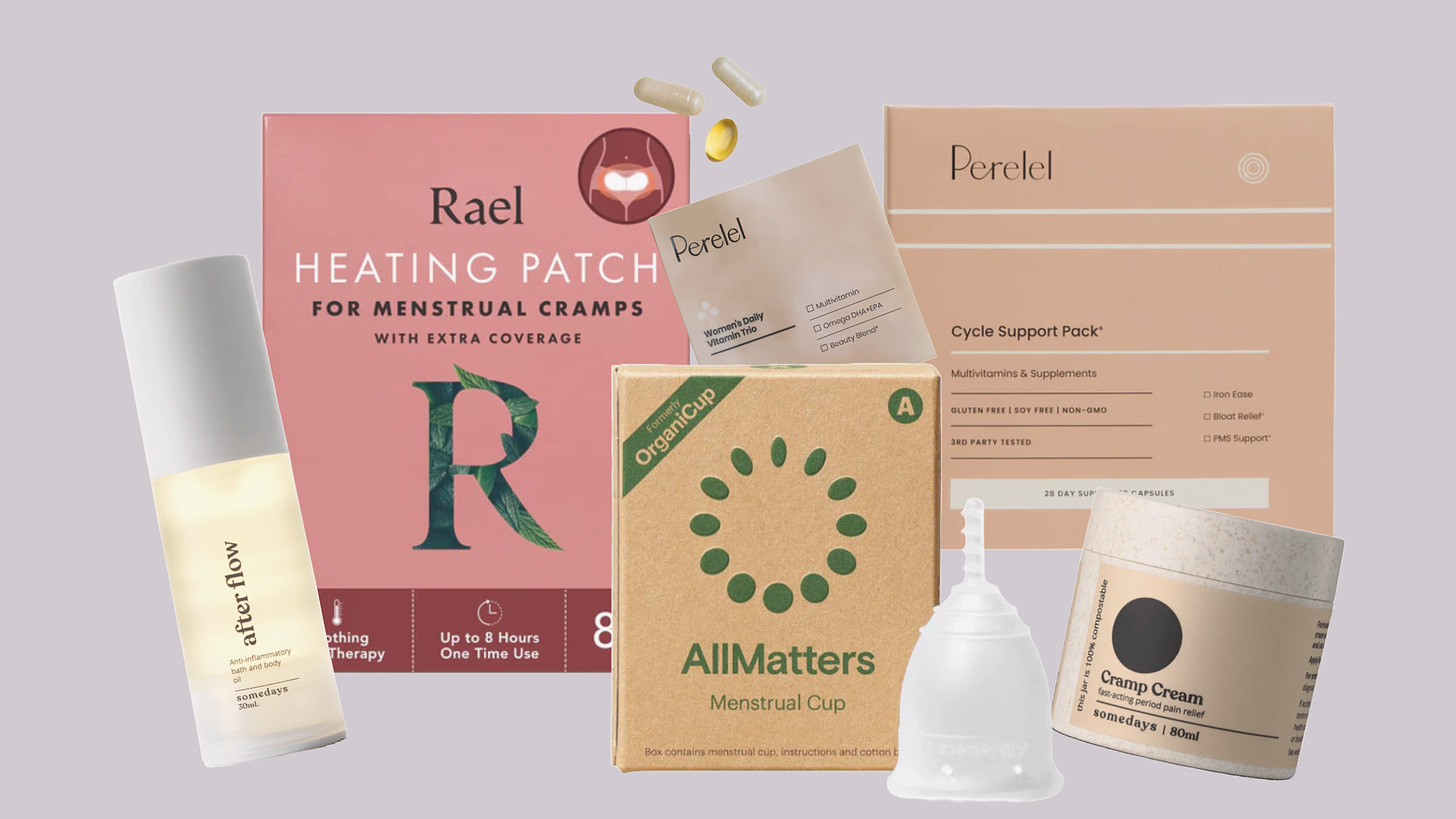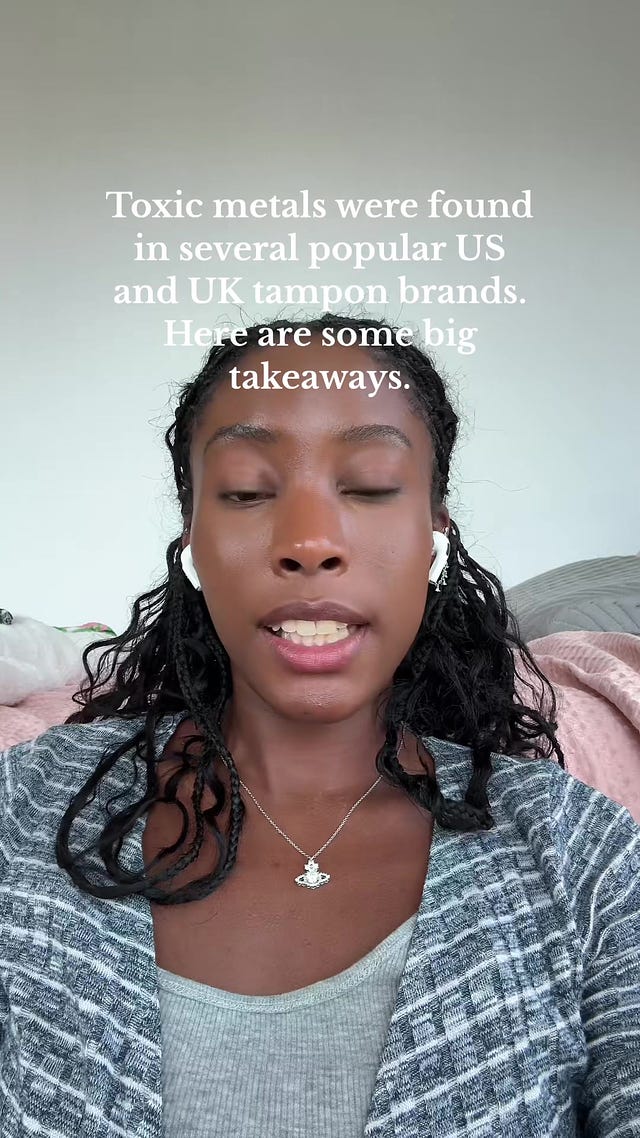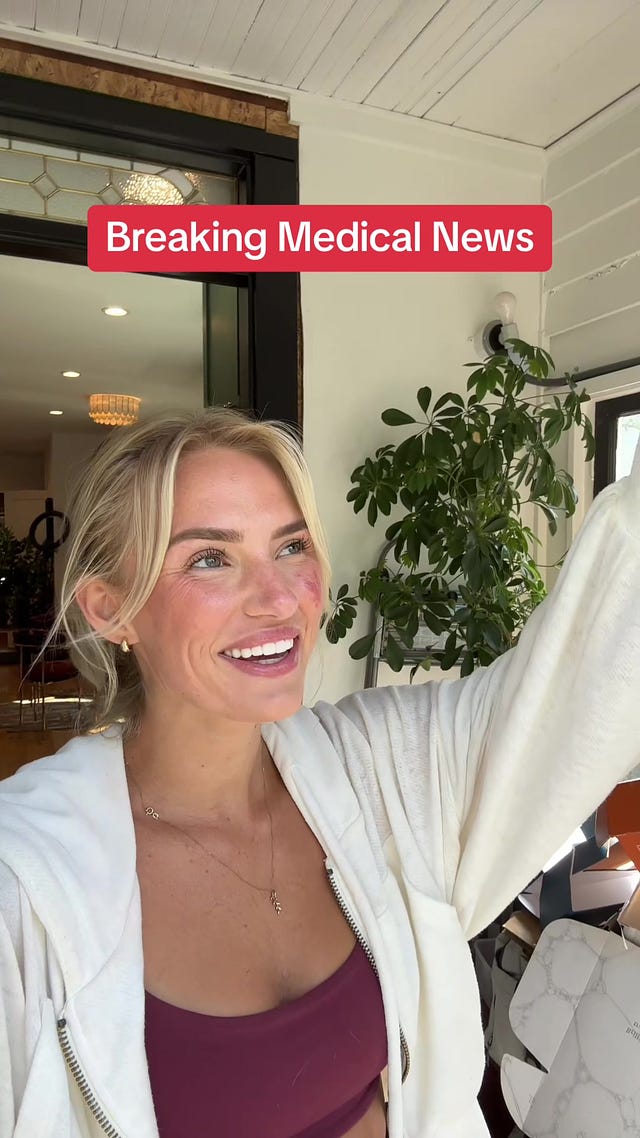I got my first period in middle school. I remember I couldn’t sit still in class because, out of nowhere, I was confronted with an ache in my lower abdomen I’d never felt before. It was so uncomfortable, unlike any stomach cramp I’d ever experienced. I needed to get up and move around so I excused myself to the restroom. It’s funny how memory latches onto things. The tiny stall, the natural light coming from a thin rectangular stretch of window just below the lip of the ceiling, high enough for privacy but wide enough to let in a breeze. I hovered over the low toilet like us girls are trained to do in public restrooms and there it was, the deepest shade of red, nearly aubergine, blood on my underwear. A tight, pang worked its way through my chest as I silently cried no before stuffing fists full of toilet paper between my legs and running up the concrete stairs to the teachers lounge. I needed to leave. I needed my mom. I was wearing white jeans.
My mom was a saint. She brought me towels, took me home, got me out of those white jeans, and talked me through how to use tampons and pads. Later that night, she handed me a card with a note reassuring me how significant this scary and confusing event was and how proud she was of me.
I don’t know what it was about the '90s and the obsession with Toxic Shock Syndrome, but between health class, MTV, and the warning pamphlets that came inside of the tampon boxes I was terrified of forgetting to change the steadfast bullet shaped guardian whom, if left unattended, could turn on you and take your legs as bounty. I just knew it was going to torment me and all the other girls in school on a monthly basis.
Fortunately, we survived. Unfortunately, the theme of toxic is still looming in the feminine care aisle. And this time, I’m concerned.
Women’s Health–An After Thought
Historically, women's health has been under-researched, leading to significant gaps in understanding and addressing specific health needs. This disparity is even more pronounced for Black women and women of color, who face compounded challenges due to systemic biases in healthcare research and practice. From misdiagnosis, overdiagnosis, and medical gaslighting to actual death, this issue has far-reaching implications, affecting the quality of healthcare and health outcomes for millions of women worldwide.
Totally Metal
News broke last week when a recent study unearthed alarming findings regarding the presence of toxic metals in the tampons millions of women use daily. This groundbreaking study by UC Berkeley and Columbia University researchers revealed measurable, albeit small concentrations, of 16 metals in tampons, including hazardous substances like lead, arsenic, and cadmium. These metals were found in both organic and non-organic tampons, with no category consistently having no concentrations of metals.
It’s hard not to immediately jump to the emotion of fear. The implications of these findings are concerning, not due to the small concentration levels, but due to the prolonged exposure in such a sensitive area with thin skin that can potentially absorb chemicals more readily than other parts of the body. I’ve heard the arguement ‘but we’ve been using these tampons for decades and we’re fine.’ My rebuttal is can we prove we are fine? With the rise of hormonal imbalances, fertility issues, fibroids, PCOS, and endometriosis, I beg to question–with hopes of understanding more.
We All Float Down Here
Speaking of reasearch decades behind schedule–for many years, menstrual products were tested using water, yes water, to test their efficacy. This practice failed to mimic the properties of menstrual blood accurately, rendering it useless. It was only last year that researchers began using actual blood in their tests to evaluate the efficacy and safety of these products.
 Tiktok failed to load.
Tiktok failed to load.Enable 3rd party cookies or use another browser
This change is crucial for ensuring that products are tested under conditions that closely resemble actual use, providing better insights into their performance and safety.
Let’s go back a few decades and revisit the Toxic Shock Syndrome hysteria. TSS is a real and serious concern, it is a condition that occurs when certain strains of bacteria from outside the circulatory system enter the bloodstream and release toxins that can cause organ damage or death. This condition can affect anyone, menstruating or not.
However, in the 80s, a tampon brand was implicated for increased risk of TSS, so the FDA and CDC jumped in to regulate. There was an obvious link between superabsorbent tampons and toxic shock syndrome, and it was recommended to use tampons with lower absorption. However, the CDC's recommendation to use the least absorbent tampon was challenging beacause tampon boxes did not clearly indicate their actual absorbent capacity.
See where I am going here? It took an additional 30+ years to think to test these products with blood to ensure the regulated information is even accurate.
I Don’t Thinx We’re Finished
I believe the recent Thinx lawsuit can be thanked as a necessary release valve openning current and necessary scrutiny of brand responsibility, research, and regulations. The Thinx brand, known for its period underwear, faced a lawsuit over the presence of PFAS, per- and polyfluoroalkyl substances, in its products. PFAS are chemicals associated with various health risks, including cancer and hormonal disruption.
The lawsuit, which resulted in a settlement, only focused on the marketing of the product, forcing the brand to remove the language, free of harmful chemicals, and pinky promise, moving forward, not to intentionally add dangerous chemicals to their underwear. At best, this outcome reads as a mild slap on the wrist followed by a wink and a nudge to not get caught next time.
The silver lining is the lawsuit brought significant attention to the issue of chemical safety in menstrual products and the need for greater transparency and regulation in the industry.
Detecting toxic metals and harmful chemicals in menstrual products underscores the urgent need for comprehensive research and stringent regulatory standards. These examples further underline just how importantly devastating the recent SCOTUS decision to overturn the Chevron Deference truly was. Woosahh.
Checkout 🛒

Somedays Cramp Cream $32; Formulated with natural plant based ingredients, Cramp Cream eases period cramps instantly, lasts up to 3 hours and can be reapplied as needed. It is a natural anti-spasmodic and anti-inflammatory that addresses period pain at the root cause, making it an excellent alternative to traditional painkillers.
Somedays Afterflow Mini $25; Formulated with natural anti-inflammatories, this hydrating bath and body oil is ideal post dry brushing to restore the skin's moisture, reduce inflammation and ease pain naturally.
Rael Heating Patches $17.99; These patches attach to clothing and underwear to heat up and relive pain, promote blood flow, and relax muscles.
Perelel Women’s Daily Vitamin Trio $46.47; Developed by a team of top OB/GYNs, nutritionists, endocrinologists and naturopathic doctors to create this blend of essential vitamins and minerals to support overall health, energy and mood.
Perelel Cycle Support Pack $40.59; Cycle Support is a monthly pack of vitamins designed to sync with your cycle. Ease common menstrual symptoms like bloating, PMS, and mood changes. As you move from menstruation through your follicular phase, ovulation, and luteal phase, the pack changes with you to support your symptoms.
All Matters Menstrual Cup $12.97; Meant to last years, not months, this cup is made of 100% soft medical-grade silicone and free of bleach, glue, perfume, lotion or indeed anything that doesn't belong inside your body. It holds up to 3 tampons worth and can be worn for up to 12 hours.
📌 Final Thoughts
There is a pressing call for the healthcare industry to prioritize research that addresses the specific health needs of women, particularly those from marginalized communities.
As awareness grows, consumers need to stay informed and advocate for safer products and better health practices. Enhanced regulatory oversight and continued research are essential to safeguard women's health and ensure menstrual products are safe for all users.
Keep fighting the good fight.
Until next time,
T.
Ps - This Substack is free, and I may receive commissions for purchases made through some linked and pinned products.







